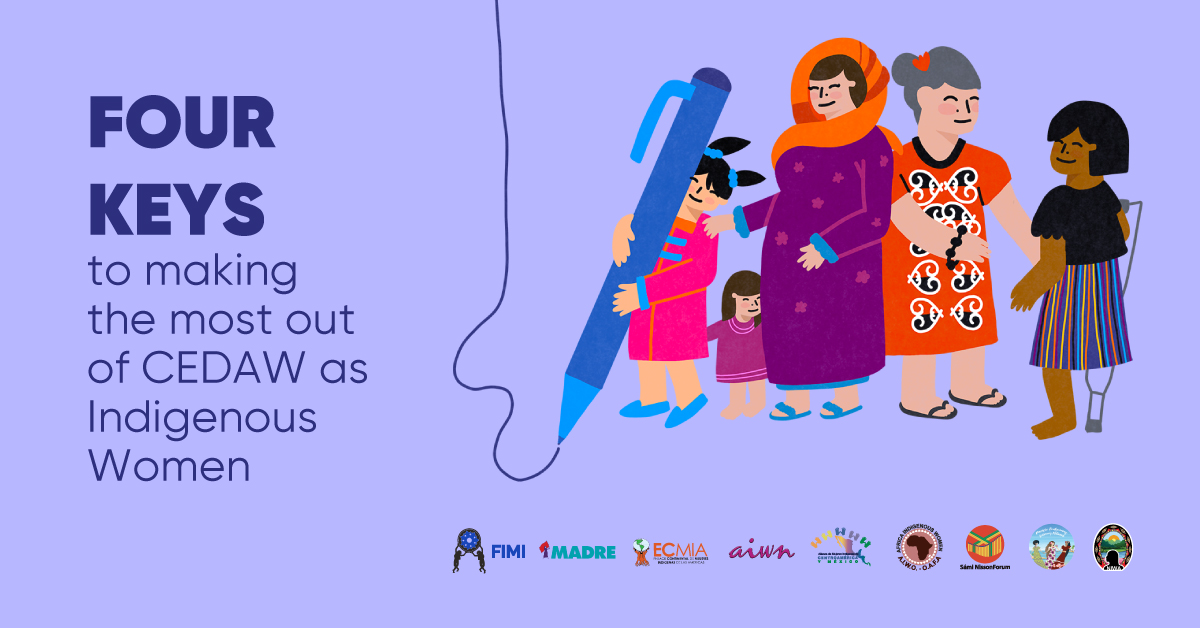Four keys for Indigenous Women to benefit from the CEDAW
| 2022-08-09

Understanding the CEDAW; influencing the reports from State Parties with inputs from Indigenous Women organizations and preparing shadow reports; participating in sessions; and promoting General Recommendation No. 39 on the Rights of Indigenous Women and Girls. Four fundamental steps to take ownership of this instrument for change.
Discrimination moves forward on our bodies, our loved ones and our land, but we, Indigenous Women and Girls, come together to face it. We resort to ancestral knowledge and turn ourselves into agents of change. We combat gender-based violence; we cure physical and spiritual diseases; we produce food and reclaim traditional medicine; we protect Mother Earth, animals and plants, because we may live in harmony thanks to them. However, oftentimes, ancestral knowledge and the collective struggle t need to be accompanied by international legal instruments to support them. The CEDAW, which is mandatory for its States Parties, is an essential instrument, as it proposes that women and girls may fully exercise their rights and freedoms.
How can we, Indigenous Women and Girls, benefit from the CEDAW? Here are four keys to do so.
- Understand what the CEDAW is, an international Convention to demand respect for the rights of women and protect them against discrimination.
- Know in advance which States will submit reports in the next CEDAW Committee session and, if our country is convened, participate in the preparation of reports.
- Attend the Geneva session and advocate for inclusion of Indigenous Women by means of policies and programs.
- Keep a close watch on future steps and add more voices to promote the CEDAW General Recommendation on the Rights of Indigenous Women and Girls.




